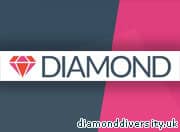A project which aims to monitor the on and off-screen diversity of popular television programmes has failed to include religion in its questionnaire, while listing ‘gender identity’ as an important category.
Project Diamond is set to assess the diversity of staff at popular shows such as Coronation Street and Eastenders, on the BBC, ITV, Channel 4 and Sky.
It will ask employees about their “Gender, Gender Identity, Age, Ethnicity, Sexual Orientation and Disability”, but not their religious affiliation.
Bizarre
The project was set up in response to calls by the comedian Lenny Henry two years ago to increase the number of black, Asian and minority ethnic people on screen.
In May this year the BBC pledged to ensure that eight per cent of its staff are LGBT, in a move dubbed “bizarre” but welcomed by the Government.
In its Diversity and Inclusion Strategy 2016-20, the BBC stated that it wants around one in thirteen of its staff to be lesbian, gay, bisexual or transsexual by the end of the decade.
It is also seeking to have “8% LGBT on screen portrayal including some lead roles by 2020”.
Over-represented
The Government, in its White Paper on the future of the BBC, welcomed the target alongside the Corporation’s other equality and diversity aims.
Writing in The Spectator magazine, Ross Clark said the target would leave the BBC dramatically over-representing LGBT people.
He highlighted figures from the Office for National Statistics showing that just 1.5 per cent of the UK population is lesbian, gay or bisexual.
With around 19,000 people working full time at the BBC, that would equate to 285 staff.
Too Christian
This year the BBC’s head of religion and ethics claimed the corporation’s output is ‘too Christian’ and more room should be made for content from other faiths.
Aaqil Ahmed, a practising Muslim, compiled a report suggesting that Islam, as well as Hinduism and Sikhism should get more airtime.
Andrew Marr, the BBC’s former Political Editor, has previously said: “The BBC is not impartial or neutral. It’s a publicly-funded, urban organisation with an abnormally large number of young people, ethnic minorities and gay people.”

